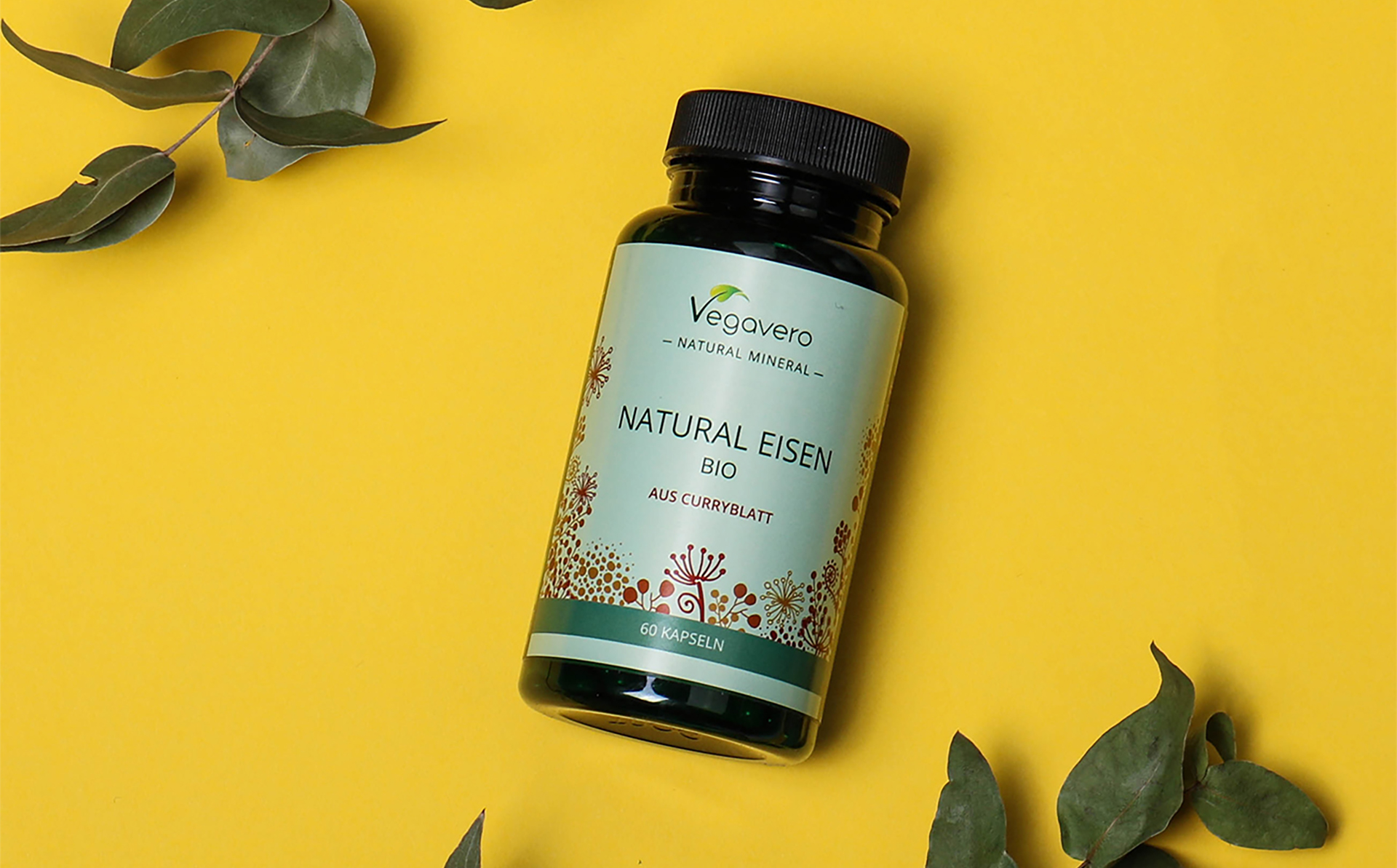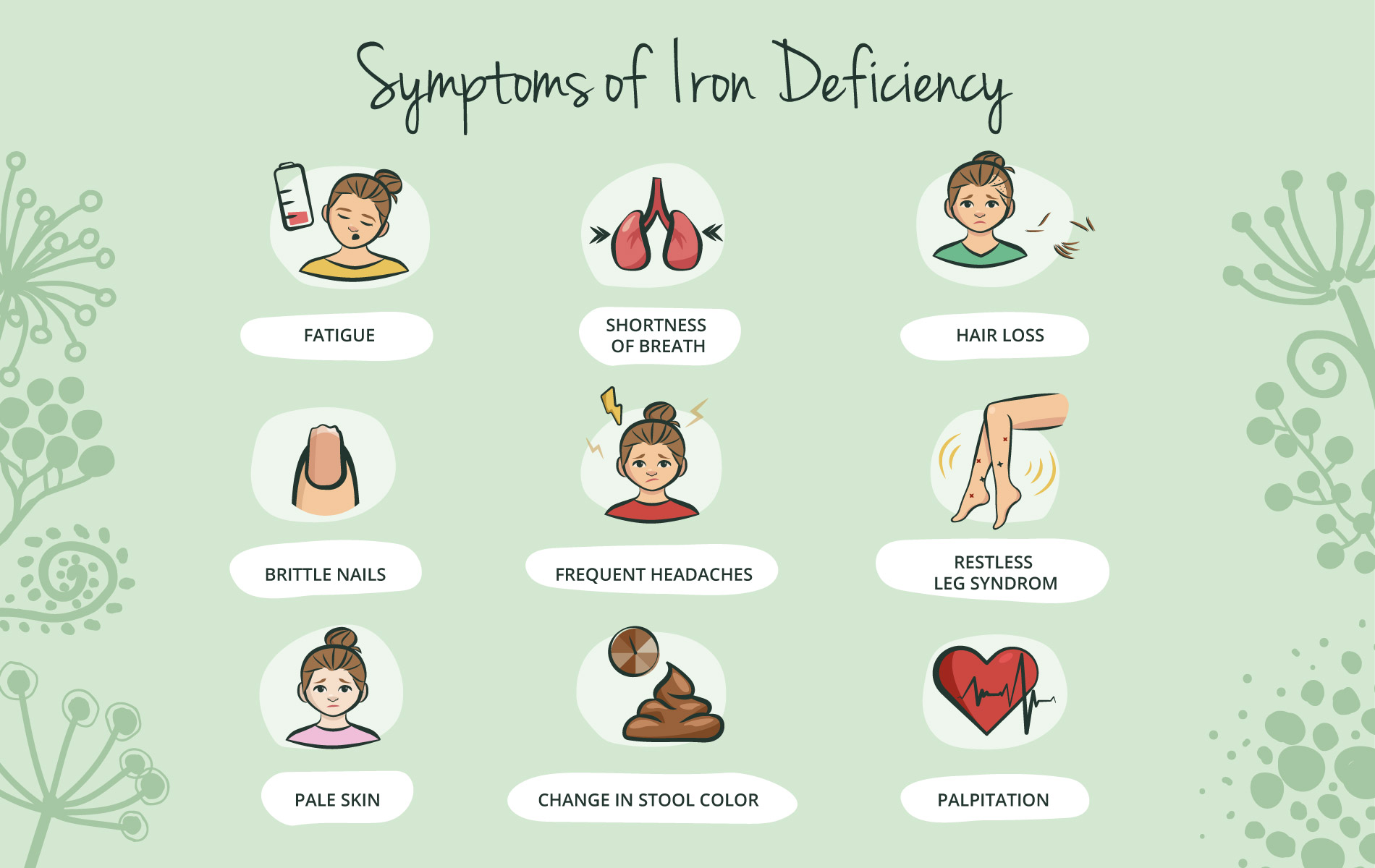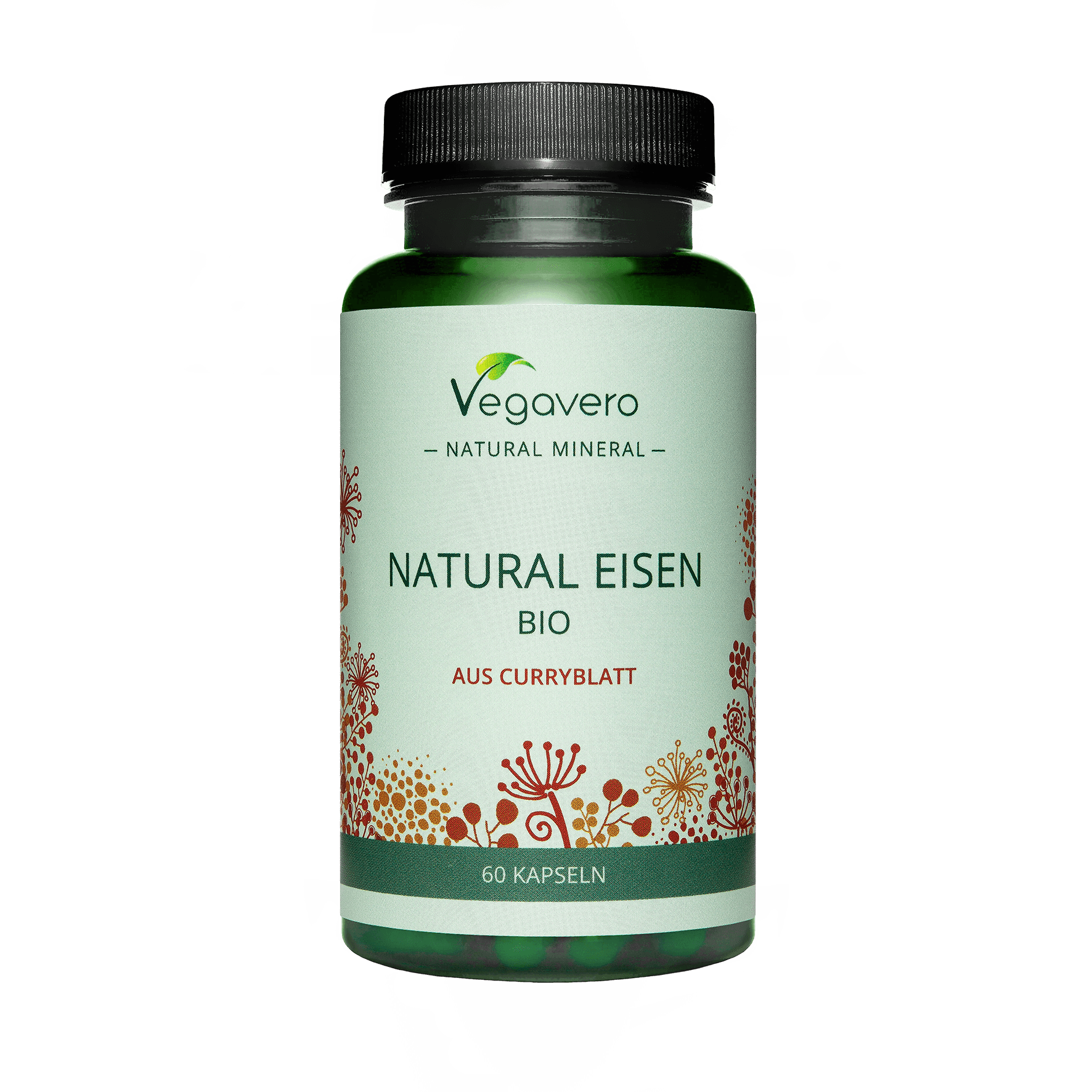
When historians think of "Iron and Blood", they think of the famous, very martial speech of Otto von Bismarck, which he gave before the Budget Commission of the Prussian House of Representatives in order to get approval for an increase in military spending. Friends of fantasy novels and TV series probably immediately think of the battle- and sword-filled sequels "Game of Thrones" or "The Last Kingdom".
But also in metabolic physiology iron and blood are inseparable. Iron is a vital trace element that cannot be produced in the human body and therefore has to be provided through diet. Iron plays a central role in various metabolic processes and has numerous tasks in the human body.
The most important role of iron is binding oxygen. Many people find that blood tastes "somehow metallic" and indeed this taste is caused by the iron in our blood. The red blood cells contain hemoglobin, an iron-containing protein. Hemoglobin (“the red blood pigment”) binds oxygen with the help of the iron and then transports it to all the cells in the body. Every cell in our body needs iron for its energy balance and iron deficiency leads to significant limitations in physical performance.
Which foods contain iron?
Iron is found in practically all kinds of foods. But usually only in very small quantities and then often in a form that is poorly bioavailable, meaning it is difficult for the body to utilize. In general, iron from plant foods is not as efficiently absorbed than iron found in meat and fish. Furthermore, there are certain foods that inhibit the absorption of iron, such as coffee and tea, but also dairy products and eggs.
Iron deficiency – a widespread problem
Although the supply of iron through food is generally guaranteed with a balanced diet, iron deficiency is still not an uncommon phenomenon. This can be mainly explained by the above-average iron requirements of certain groups of people.
- Risk group no. 1 for iron deficiency are women: Almost half of all women of childbearing age have an iron deficiency. The reason for this is usually blood loss during menstrual bleeding.
- Vegetarians and vegans also often suffer from iron deficiency, as iron from plants is less efficiently absorbed in the intestine.
- Athletes have a higher iron requirement due to an increase in energy and oxygen metabolism. They produce more haemoglobin and blood. Their iron requirement is approximately twice as high as that of non-athletes. In addition, athletes suffer from iron deficiency due to increased sweating: the body loses 1.2 milligrams of iron with every liter of sweat.
- Growing bodies also place high demands on the supply of nutrients, and the body especially needs iron during this phase - on average about twice as much as an adult.
- Pregnant women and nursing mothers, however, have the greatest need for iron. The growth and development of the child in the womb, the increase in blood volume, the production of the placenta and the supply of the umbilical cord increase the mother's iron requirements up to 6 times during pregnancy. The need for iron is also increased during the breastfeeding period, especially at the beginning in the phase in which the mother supplies the child with antibodies through her breast milk. A pronounced iron deficiency in the mother also increases the risk of postpartum depression, the so-called "baby blues".
No iron - no fun
The best known symptoms of iron deficiency are paleness and fatigue. They are caused by an insufficient supply of oxygen to the organs as the red blood pigment haemoglobin – the oxygen transporter in our blood – is low in iron deficiency or anaemia. Many people do not even realize that they suffer from iron deficiency. They attribute the permanent fatigue - the most common symptom - to their lifestyle or stressful everyday life.
But there are also numerous other symptoms of iron deficiency:
- shortness of breath
- hair loss, brittle nails, slowed hair and nail growth
- headaches
- restless leg syndrome
- pale, chapped or dry skin
- increased susceptibility to infections
- nervousness
- sensitivity to cold
- drop in performance

Deceiving iron supplements
Along with magnesium and vitamin C, iron supplements are probably amongst the most common food supplements. There are countless iron products: from the cheapest offers in discount stores to expensive supplements in pharmacies. Unfortunately, we consider a lot of these products low quality.
It already starts with the dosage: according to the motto "A lot helps a lot", there are numerous iron products with a dosage of 40 mg or more per day. However, this high dosage is problematic as the body cannot excrete excess iron, but stores it in various organs. Furthermore, such a high dosage often leads to constipation and nausea.
On the other hand, especially the inexpensive iron supplements often contain undesirable additives such as microcrystalline cellulose or magnesium stearate, because these make the production much cheaper.
And finally, synthetically produced raw materials are almost always used, of which the bioavailability is often not particularly good.
There are other ways – Iron from curry leaves
We have chosen the leaves of the curry tree as the perfect source of iron. This natural iron has a particularly high bioavailability, is stomach-friendly and - unlike synthetic iron - also contains numerous other important trace elements. Due to the high bioavailability, we do not have to dose our supplement so highly, as the body can absorb the organic iron particularly well. AND: We only use ORGANIC curry leaf extract and thus offer a product with 100% organic quality.
Furthermore, unlike products from other manufacturers, we do not use any additives such as magnesium stearate or microcrystalline cellulose. With 14 mg iron, 100% of the recommended daily amount of iron is easily reached with one capsule, which ensures an optimal supply of iron to the body.
So, for all those who attach particular importance to the quality of a dietary supplement with naturally derived ingredients, our ORGANIC iron is an optimal solution.
Nice to know!
We recommend taking the iron supplement together with vitamin C. Vitamin C is an important absorption promoter for iron. And here too we have a natural solution: vitamin C from ORGANIC Acerola.
Iron deficiency? No problem with our natural ORGANIC Iron Capsules!
Recommended Products
NATURAL IRON

Our natural iron supplements for women are derived from curry leaves from controlled organic cultivation in India. Instead of a low-quality, synthetic iron supplement, our natural product provides a unique compound of phytonutrients that increases the bioavailability and bioactivity of the iron.


